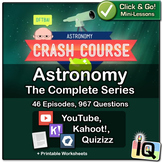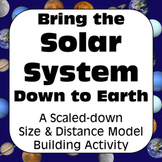12 results
Chemistry cultural activities for Microsoft Word
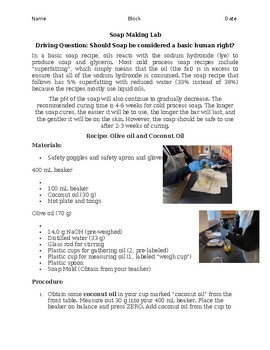
Chemical Bonding: Soap Making Lab
This lab is part of the Chemical Bonding unit that uses the chemistry of soap to introduce the social justice question: "Should soap be considered a basic human right?" Students can use this lab to make soap and sell them to raise money for a charity, or students can make the soap to give away to a shelter in need. This is an excellent way to make chemistry relevant, relatable and culturally responsive.
Subjects:
Grades:
9th - 12th
NGSS:
HS-PS1-3
Also included in: Chemical Bonding: Soap and Social Justice Unit
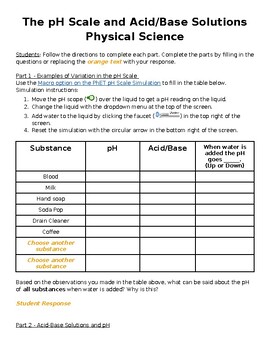
The pH Scale and Acid/Base Solutions - Alternative Assessment
This is meant to be an alternative form of assessment to MCQ problems. Includes all necessary student materials, a grading rubric, and an answer key.Students use a virtual simulation to determine the pH of varying substances and state how the pH of those substances are altered by adding water to them. Students then utilize a different virtual simulation to analyze the components of acids and bases. Finally, students address a culturally relevant connection to the information by determining the p
Subjects:
Grades:
9th - 12th
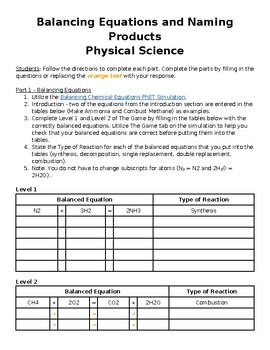
Balancing Equations and Naming Products - Alternative Assessment
This is meant to be an alternative form of assessment to MCQ problems. Includes all necessary student materials, a grading rubric, and an answer key.Students work with a PhET lab to balance chemical equations and then must name the types of equations (two portions). Students then provide either the name or the formula for compounds given the alternative, state whether the compound is ionic or covalent, and determine the number of atoms in the balanced equation. Finally, students address a cultur
Subjects:
Grades:
9th - 12th
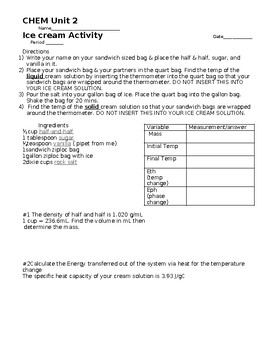
Ice cream phase and temperature change lab
This is the student sheet I use to have students make ice cream in a bag. We do this at the end of our energy unit which discusses energy involved in phase and temperature changes. We also record these changes with temperature vs time graphs, heat calculations, and energy bar charts/ "LOL charts" (ASU modeling methods). This lab is fun can can be done in gallon sized bags, but I have found saving large plastic or metal containers ( dishwasher pod or coffee cans) work better.
Subjects:
Grades:
7th - 12th
NGSS:
HS-PS3-4
, HS-PS3-2
, HS-PS3-1
, HS-PS3-3
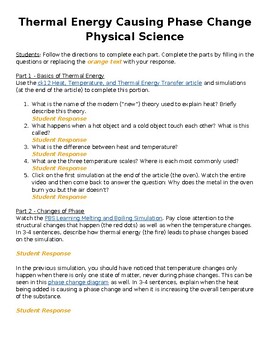
Thermal Energy Causing Phase Change - Alternative Assessment
This is meant to be an alternative form of assessment to MCQ problems. Includes all necessary student materials, a grading rubric, and an answer key.Students begin by reading and answering questions regarding heat, temperature, and thermal energy from a ck12 resource. They then describe phase changes based on phase change diagrams. Finally, a culturally relevant piece has students address the lack of safe drinking water in under served communities and means to make it healthier.
Subjects:
Grades:
9th - 12th
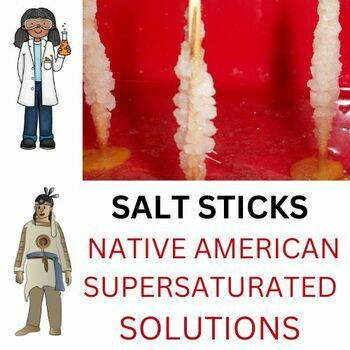
Chemistry Supersaturated Solutions-Salt Sticks and Native American Food
Combine Chemistry and History This lab will teach your students one of the six Native American food preservation techniques!!! This is a terrific lab to join forces with your history department to teach the concepts of solutions, solves, solutes, and supersaturated solutions. All materials are found in the kitchen. Included are two reading one about how the Native Americans made salt sticks and the second is a science read. This is a new twist on the classic lab. MATERIALSBowlToothpicksSalt 2
Subjects:
Grades:
6th - 8th
NGSS:
MS-PS1-4
, MS-PS1-1
Also included in: Native American Activities Hands on labs to explore history
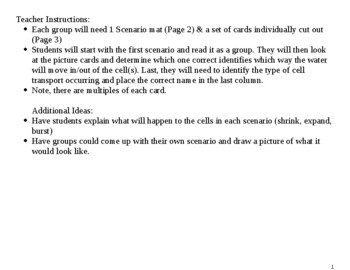
Cell Transport Scenarios Card Sort
Students will analyze scenarios to predict which direction the water molecules will move in/out of a cell, as well as identify the type of cell transport being used. This is a great group activity that allows for a lot of discourse and collaboration.
Subjects:
Grades:
9th - 10th
Types:
Also included in: Cell Transport Bundle | 2 Sorts | Worksheet| 25 Qs Whiteboard Practice
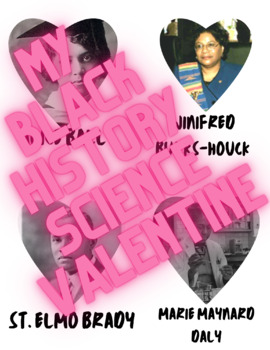
My Black History Science Valentine
This Valentines Day themed assignment is the perfect way to bring diversity and inclusion to your science classroom. This product includes print outs of influential black chemists and engineers and a link to a website that provides information about their contributions to society.
Subjects:
Grades:
9th - 12th
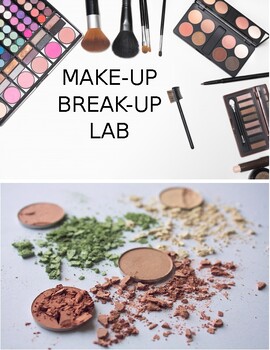
Makeup Breakup Lab
Includes:-Student handout with a purpose, materials, procedure, data table, and post lab questions. -Teacher tips pageA beginning of the year science (general science or chemistry) lab activity for students to: -Get excited for science-See how science can be applied to the real world-Become familiar with lab procedures-Become familiar with lab instruments-Use data tables-Re-acquaint themselves with quantitative and qualitative analysis-Practice analyzing quantitative and qualitative data-Analyze
Subjects:
Grades:
8th - 12th
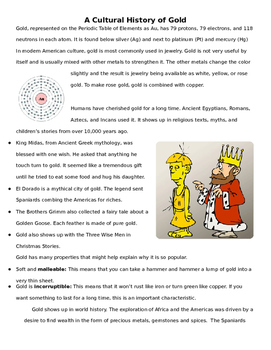
Element Project- Cultural History of Gold
This is a fun project to do with students as they read to learn about different characteristics and facts about gold. Used to introduce different concepts, this project utilizes both English and Spanish language for ESL classrooms or Spanish classes at the higher education level. The end profile is a great "dating profile" that has students thinking about element relationships outside the box!
Subjects:
Grades:
7th - 9th
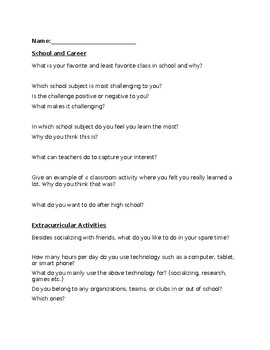
Getting to Know You Survey
Use this survey at the beginning of the year to get to know your students. Additionally, this will help them contemplate who they are.
Subjects:
Grades:
6th - 12th
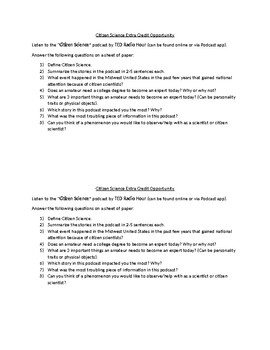
Citizen Science Extension/Extra Credit Assignment
A great extension or extra credit assignment to have students think about how average citizens can be a part of the scientific community even if they are not traditionally trained scientists.
Subjects:
Grades:
7th - 12th
Showing 1-12 of 12 results

